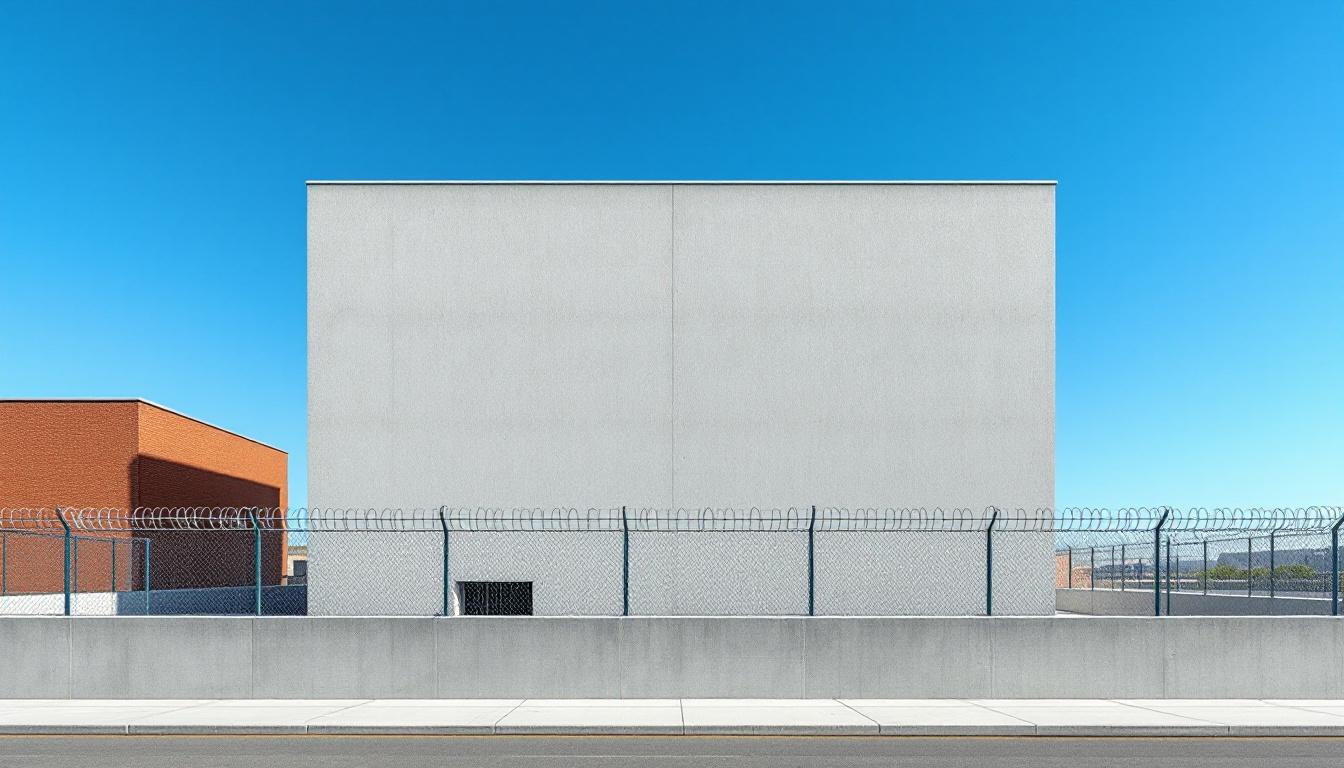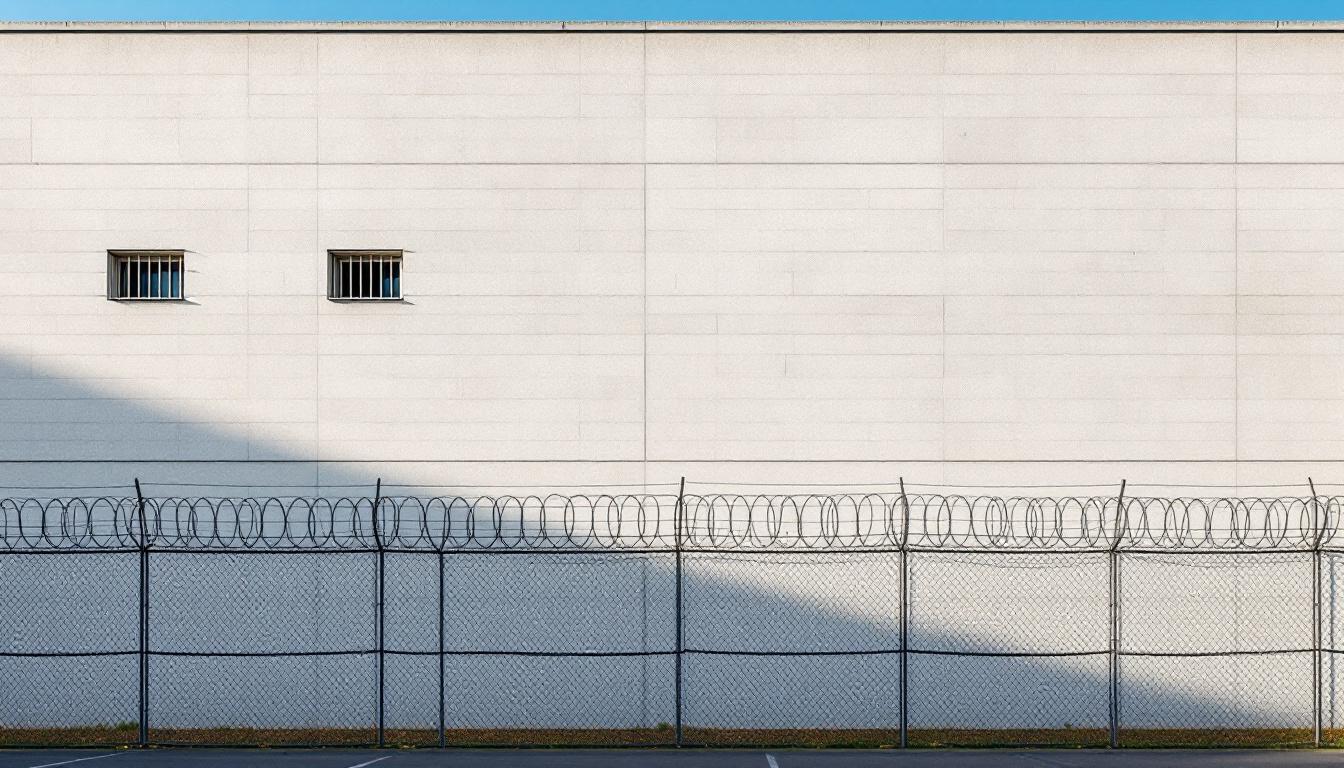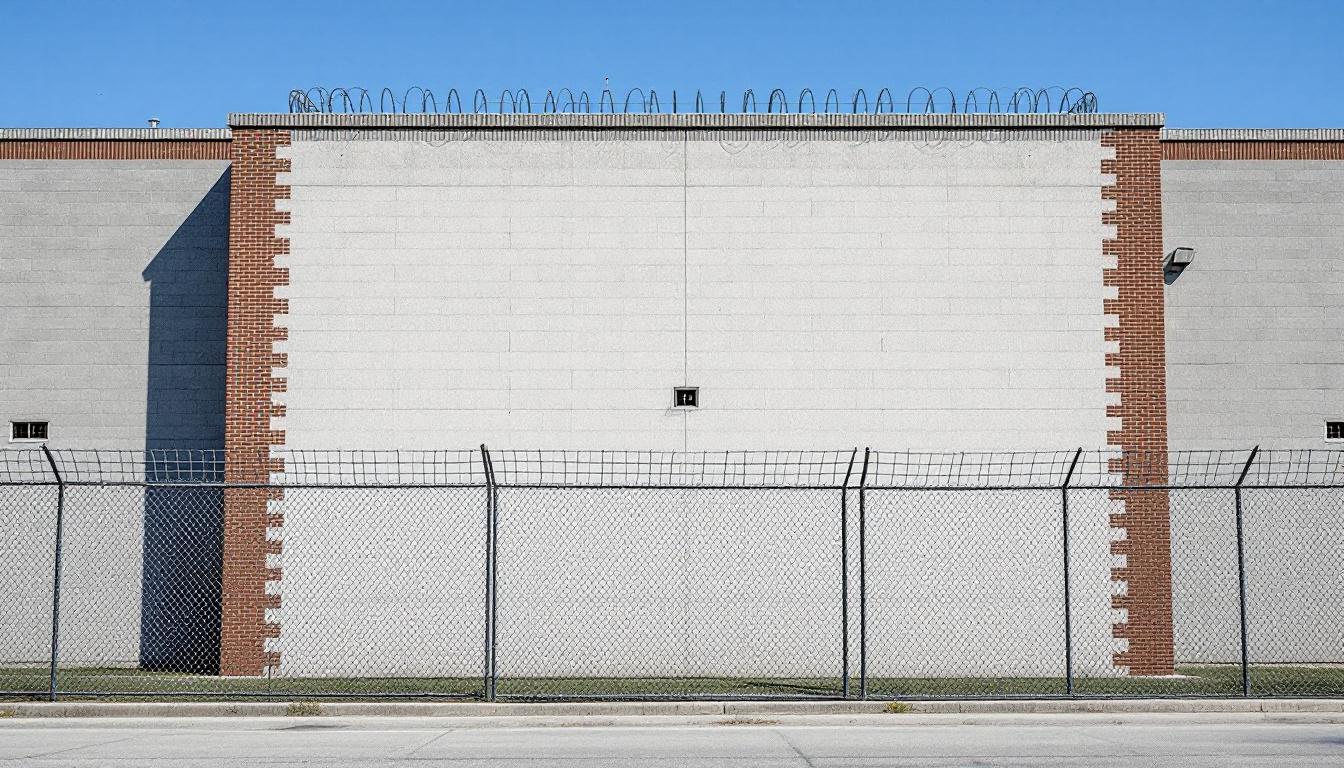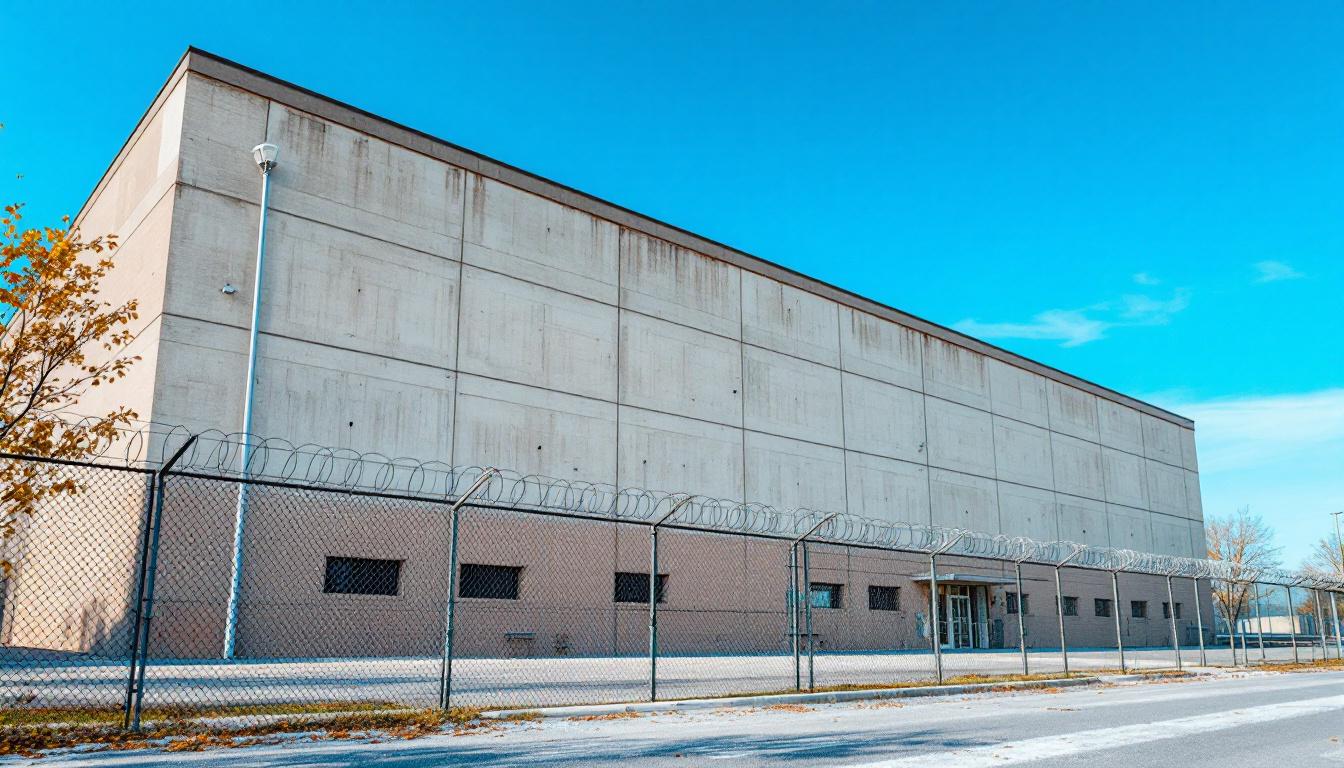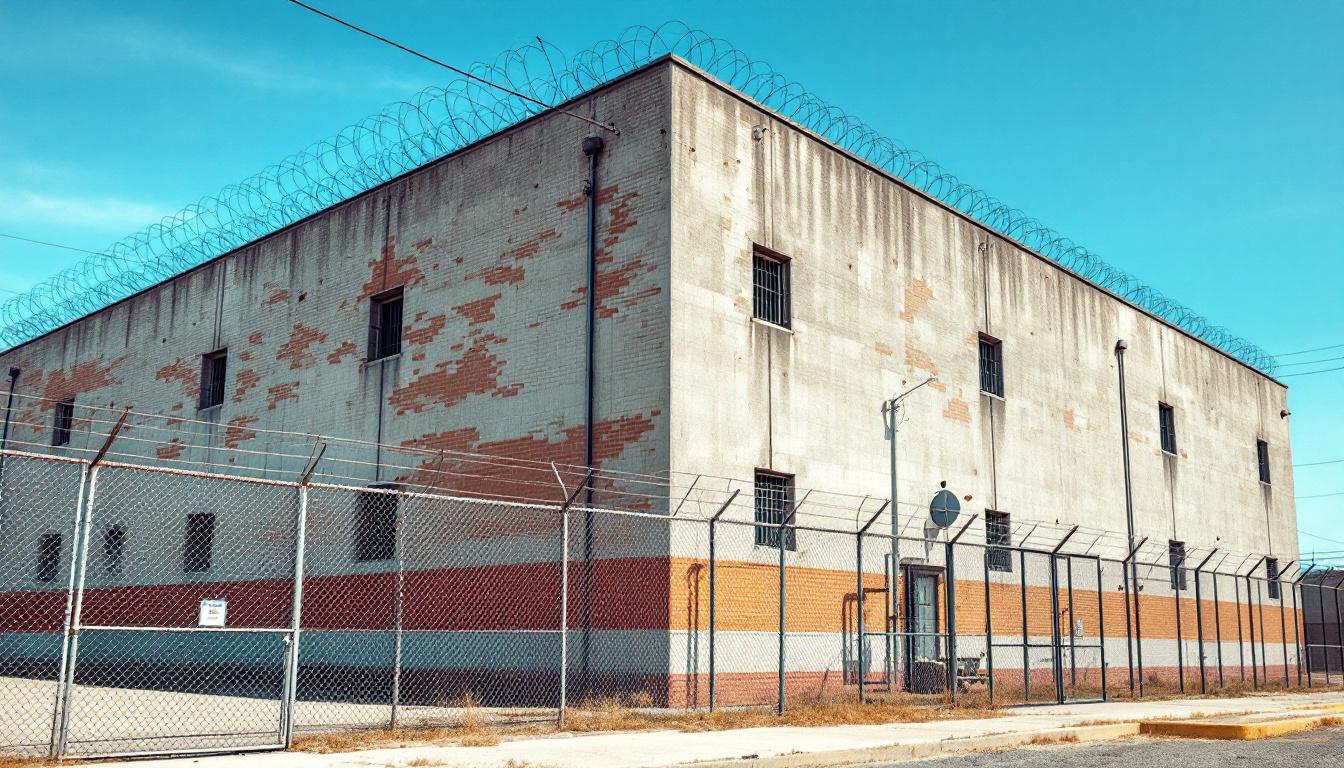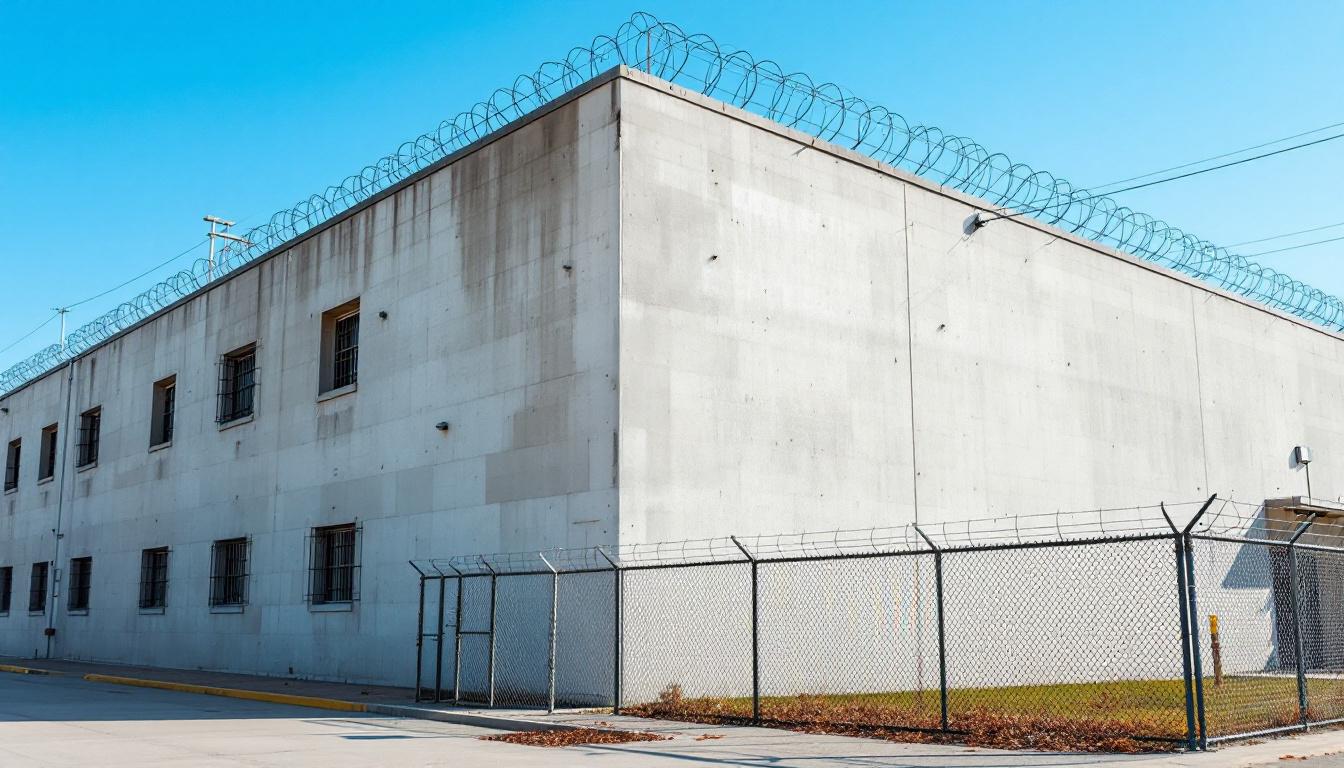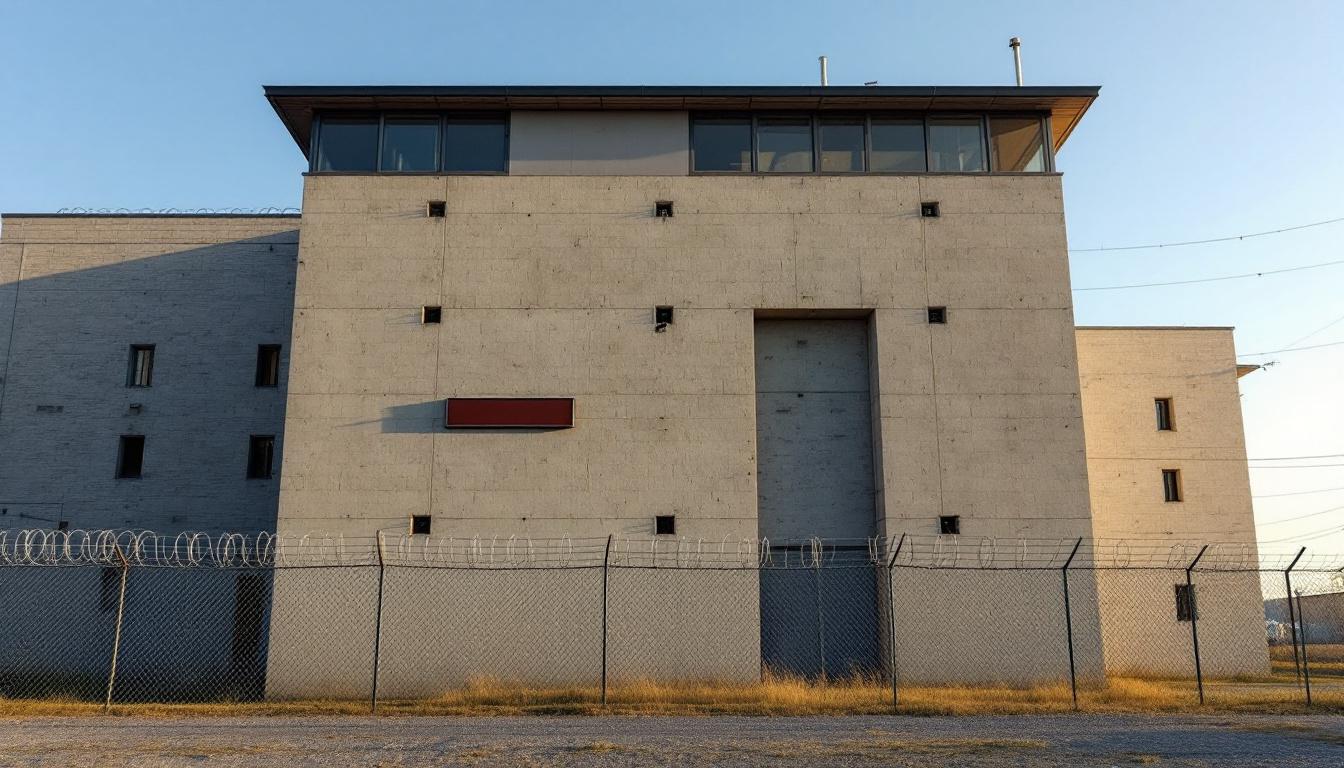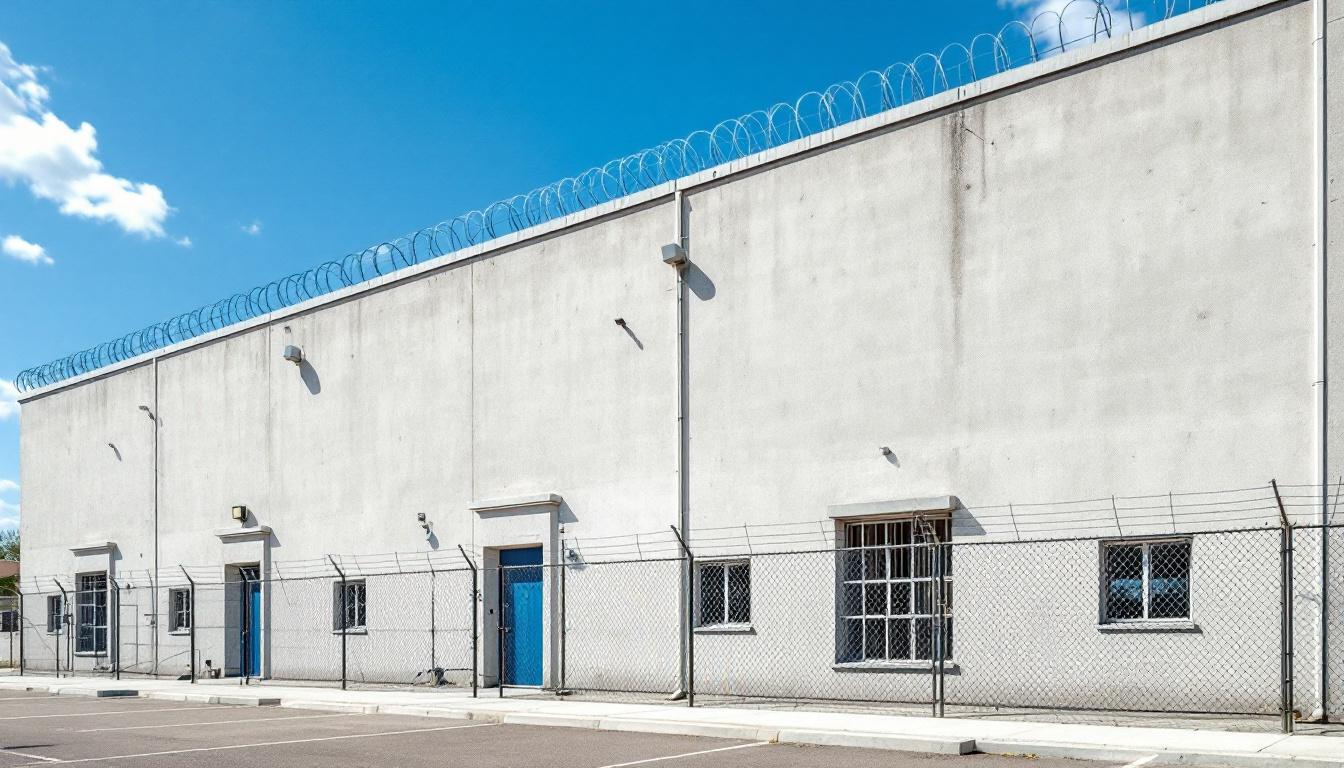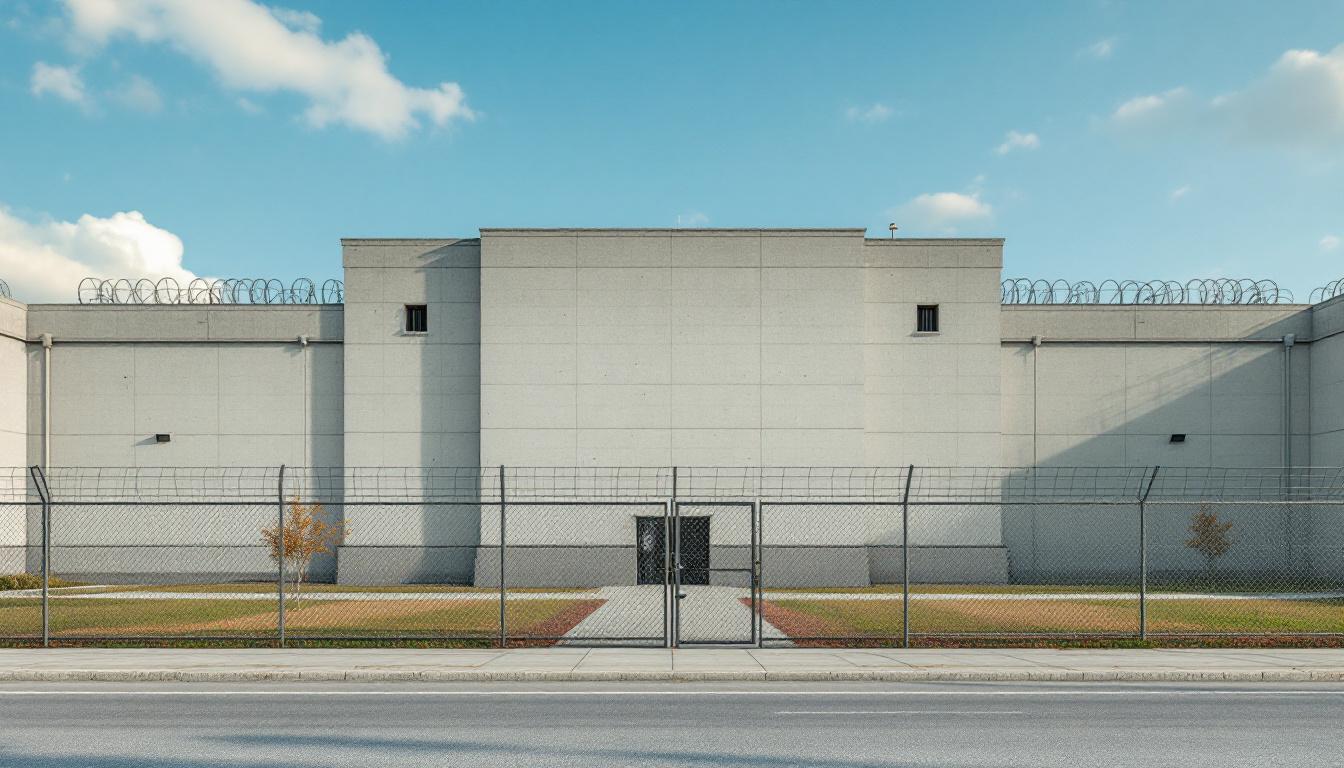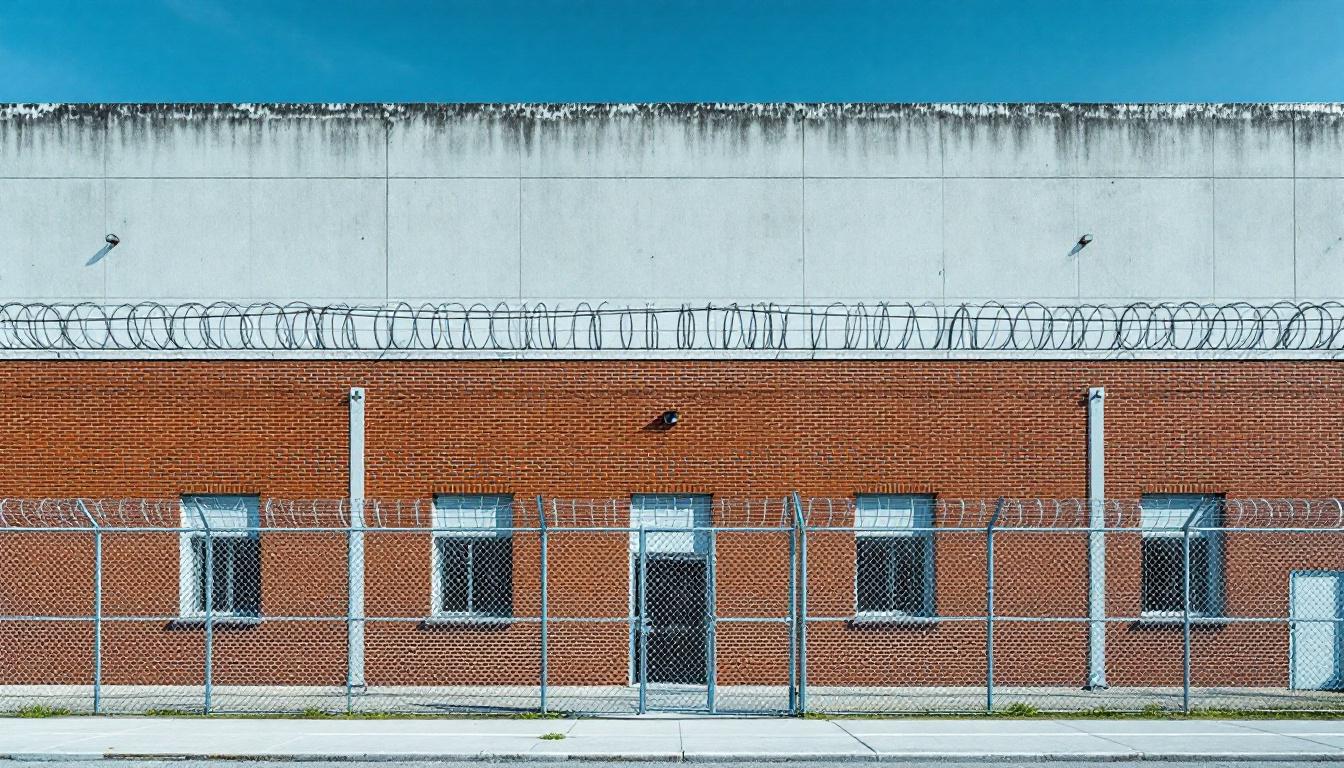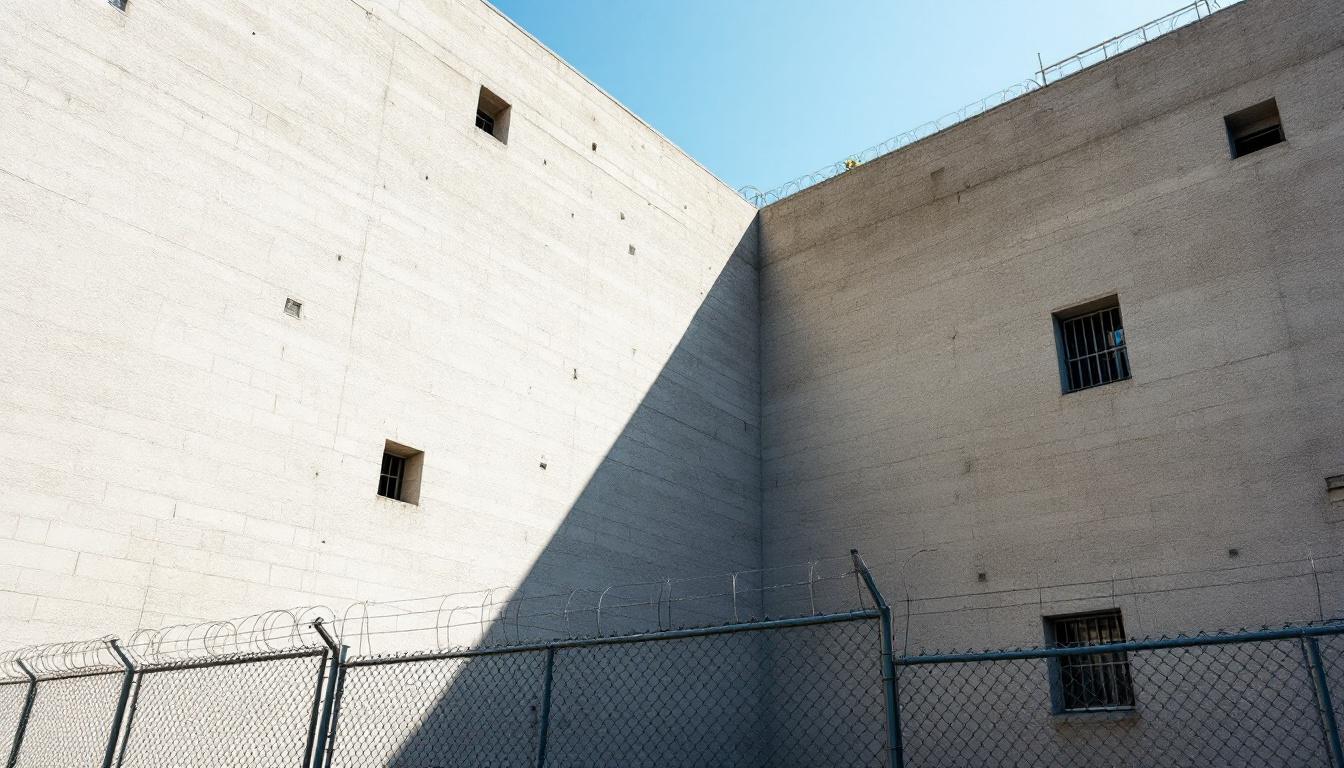
Quick Navigation
How to contact an inmate at Queen Anne's County Detention Center
This comprehensive guide will walk you through how to connect with an inmate at Queen Anne's County Detention Center. Follow the steps below to find an inmate and send letters and photos:
- Search for the inmate using our search tool below
- Create your account or log in to Penmate
- Write your message (up to 6,000 characters)
- Send instantly - inmates receive printed copies daily
Find an Inmate
Search for an inmate to start communicating today
Tip: You can search by first name, last name, or inmate ID number
To contact a person at Queen Anne's County Detention Center start by searching for the person on the official facility website. Perform a search by following these steps:
- Step 1: Enter their first name and last name into the search form and click "Search"
- Step 2: Locate their inmate record
- Step 3: Write down their Inmate ID and any housing information provided
Important! Be sure to enter the person's full name. Nicknames should not be used.
How to Send Messages to Inmates

You can use your phone or computer to send emails, letters, and photos to an inmate. Messages are sent electronically to inmate tablets or kiosks at the facility. If you would like to send a message, start by searching for an inmate at Queen Anne's County Detention Center.
Sending Photos and Postcards

A great way to send love and support to a loved one at Queen Anne's County Detention Center is to send photos and postcards. It only takes a few minutes to send photos from your phone and it makes a huge difference. You can also mail postcards with words of support and inspiration, or design your own postcard for special moments like birthdays and holidays.
Important! Be sure not to send any explicit photos or they may not be approved by the facility. You can also use a photo printing app like Penmate to make sure your photos are printed at the correct size (4x6 or 3x5) and are mailed according to the rules and regulations of Queen Anne's County Detention Center.
Frequently asked questions about Queen Anne's County Detention Center
-
How long does it take to deliver a message?
If you're sending an email message your letter is usually delivered within 24-48 hours. For messages sent via mail you should expect delivery within 3-7 days. All messages will need be approved by Queen Anne's County Detention Center.
-
How much does it cost to send a message to Queen Anne's County Detention Center?
You can send a message free using your phone or mail a message via USPS for the price of a $0.60 stamp and envelope. You can also purchase credits or e-stamps from services starting at $1.99.
-
What services can I use to contact an inmate at Queen Anne's County Detention Center?
Penmate
You can use Penmate to send letters and photos to an inmate from your phone. It's an easy way to stay in touch during your loved one's incarceration. Use the inmate locator to find an inmate's location and contact information, then you can send messages within a few minutes.
Securus messaging
Securus may be another option for communicating with an inmate at Queen Anne's County Detention Center. You can create a friends and family account and purchase credits to send messages. All messages will be reviewed and must be approved by the facility.
JPay
Some county jails and state prisons may support sending messages with JPay. You must register an account with the system, find your loved one, and purchase stamps to send messages. For some locations you can also attach photos.
Smart Jail Mail
You may also check if Smart Jail Mail is available at Queen Anne's County Detention Center. Smart Jail Mail is operated by Smart Communications and has contracted with some state and county jails. After purchasing credits, your messages and photos are sent to the facility, printed out, and then handed out to your loved one.
-
What is the mailing address of Queen Anne's County Detention Center?
Mailing address:
Queen Anne's County Detention Center
500 Little Hut Dr
Centreville, MD 21617
Phone: (410) 758-3817 -
What are the visiting hours at Queen Anne's County Detention Center?
Visiting hours at Queen Anne's County Detention Center vary by housing unit and security level. Generally, visits are scheduled on weekends and holidays, with some facilities offering weekday visits. Contact the facility directly at (410) 758-3817 or check their website for the current visiting schedule. Visits typically last 30-60 minutes and must be scheduled in advance.
-
What items are prohibited when sending mail to Queen Anne's County Detention Center?
Prohibited items typically include: cash, personal checks, stamps, stickers, glitter, glue, tape, staples, paperclips, polaroid photos, musical or blank greeting cards, hardcover books, magazines with staples, and any items containing metal or electronics. Only send letters on plain white paper with blue or black ink. Photos must be printed on regular photo paper (no Polaroids). Always check with Queen Anne's County Detention Center for their specific mail policies.
-
How do I send money to an inmate at Queen Anne's County Detention Center?
You can send money to an inmate at Queen Anne's County Detention Center through several methods: 1) Online using JPay, Access Corrections, or the facility's approved vendor, 2) Money orders mailed directly to the facility with the inmate's name and ID number, 3) Kiosks located in the facility lobby, or 4) Over the phone using a credit or debit card. Fees vary by method, typically ranging from $2.95 to $11.95 per transaction.
-
Can I schedule a video visit with an inmate at Queen Anne's County Detention Center?
Many facilities now offer video visitation as an alternative to in-person visits. At Queen Anne's County Detention Center, video visits may be available through services like Penmate, Securus Video Connect, GTL, or ICSolutions. Video visits typically cost $10-20 for 20-30 minutes and must be scheduled in advance. You'll need a computer or smartphone with a camera and reliable internet connection. Contact the facility for their specific video visitation policies and approved vendors.
-
What identification do I need to visit an inmate at Queen Anne's County Detention Center?
All visitors must present valid government-issued photo identification such as a driver's license, state ID, passport, or military ID. Minors must be accompanied by a parent or legal guardian who can provide the minor's birth certificate. Some facilities require visitors to be on the inmate's approved visitation list, which may require a background check. Contact Queen Anne's County Detention Center for specific ID requirements and visitor approval procedures.
-
How can I find out an inmate's release date?
To find an inmate's release date at Queen Anne's County Detention Center, you can: 1) Use the online inmate search tool if available, 2) Call the facility's records department, 3) Contact the inmate's case manager or counselor, or 4) Have the inmate provide this information during a call or visit. For privacy reasons, some facilities only release this information to immediate family members.
Facility Overview
Contact Information
Queen Anne's County Detention Center500 Little Hut Dr
Centreville, MD 21617
Phone: (410) 758-3817
Official Website
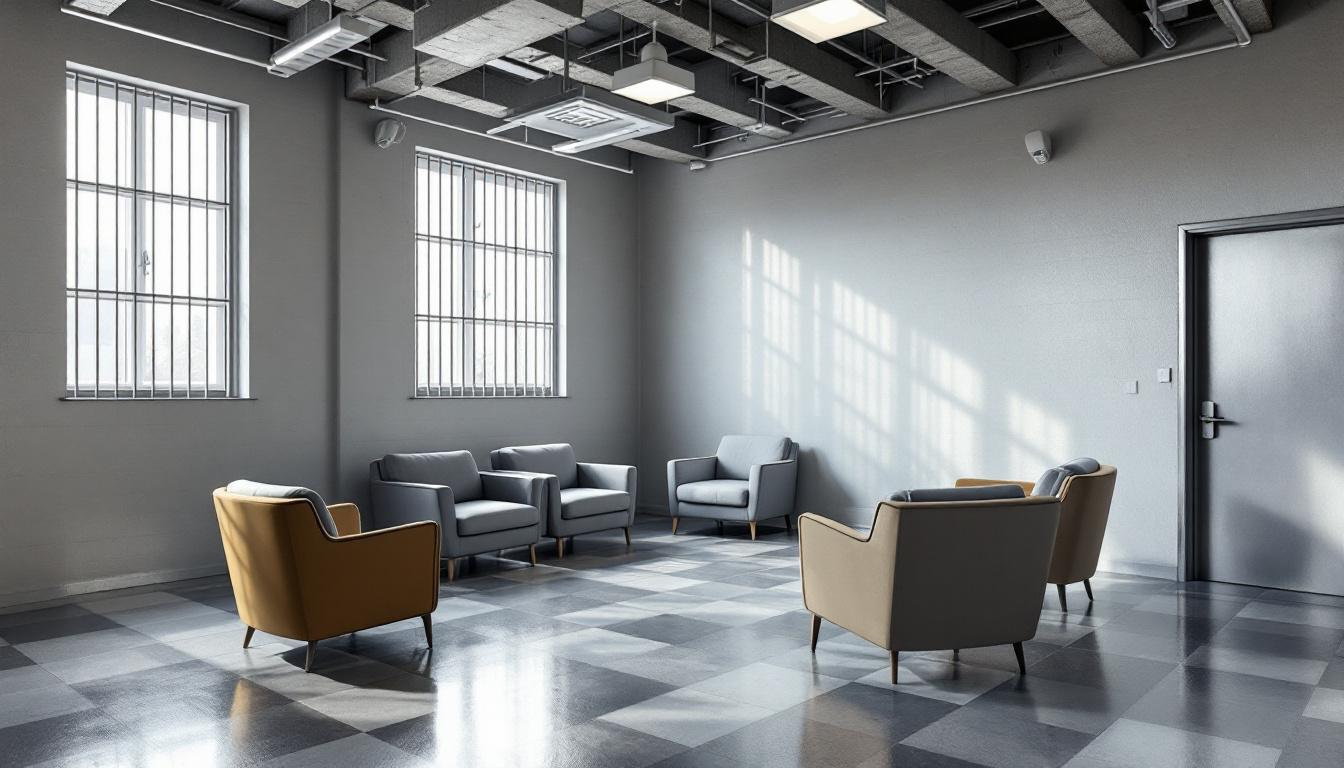
About Queen Anne's County Detention Center
Serving the justice system's mission to maintain public safety while preparing individuals for successful reintegration, the Queens County Detention Center operates as a structured correctional environment in Centreville, Maryland. This MD correctional facility functions within the broader framework of the state's detention system, providing secure housing and supervised programming for individuals awaiting trial or serving shorter sentences in Queen Anne's County and surrounding areas.
Through a systematic approach to daily operations, the facility typically emphasizes maintaining order and security while offering those incarcerated services that may support personal development and preparation for release. The detention center generally provides basic educational opportunities, substance abuse counseling, and vocational training programs designed to address underlying issues that often contribute to criminal behavior. Staff members work to create a structured environment where individuals can participate in programming while serving their time, with the goal of reducing recidivism and supporting successful community reentry.
Located in Centreville, the facility serves as an integral component of Maryland's correctional infrastructure, working in coordination with local courts, law enforcement agencies, and community organizations. The center's rehabilitation-focused approach typically includes mental health services, religious programming, and family visitation opportunities that help maintain important community connections. Through these various programs and services, the Queens County Detention Center aims to balance the dual responsibilities of public safety and offender rehabilitation within the Centreville area and broader regional justice system.
Programs & Services
Within the structured environment of Queens County Detention Center, those incarcerated encounter a comprehensive framework of developmental offerings designed to foster personal growth and prepare individuals for successful community reintegration. The facility's approach emphasizes creating meaningful pathways for skill acquisition and self-improvement, recognizing that productive engagement during incarceration can serve as a foundation for positive life changes. Through carefully structured programming, participants may access various opportunities that address educational deficits, develop marketable skills, and promote psychological well-being within a secure setting.
Educational advancement forms a cornerstone of the facility's developmental approach, with offerings that typically include basic education programs designed to help participants earn their GED or improve fundamental literacy and numeracy skills. Special education services may be furnished to address specific learning needs, ensuring that all individuals can participate meaningfully in educational activities regardless of their academic background. Furthermore, college correspondence courses often provide pathways for higher education pursuit, allowing motivated participants to work toward degrees while maintaining the security protocols essential to facility operations.
The facility's therapeutic and support offerings complement educational initiatives by addressing the psychological and social factors that may contribute to successful reintegration. Group therapy sessions typically provide structured environments where participants can explore behavioral patterns and develop coping strategies under professional guidance. Additionally, peer support groups may offer opportunities for individuals to share experiences and provide mutual encouragement, while broader therapeutic services often include individual counseling and specialized interventions tailored to address substance abuse, anger management, or other personal challenges that participants may face.
Daily Life & Visitation
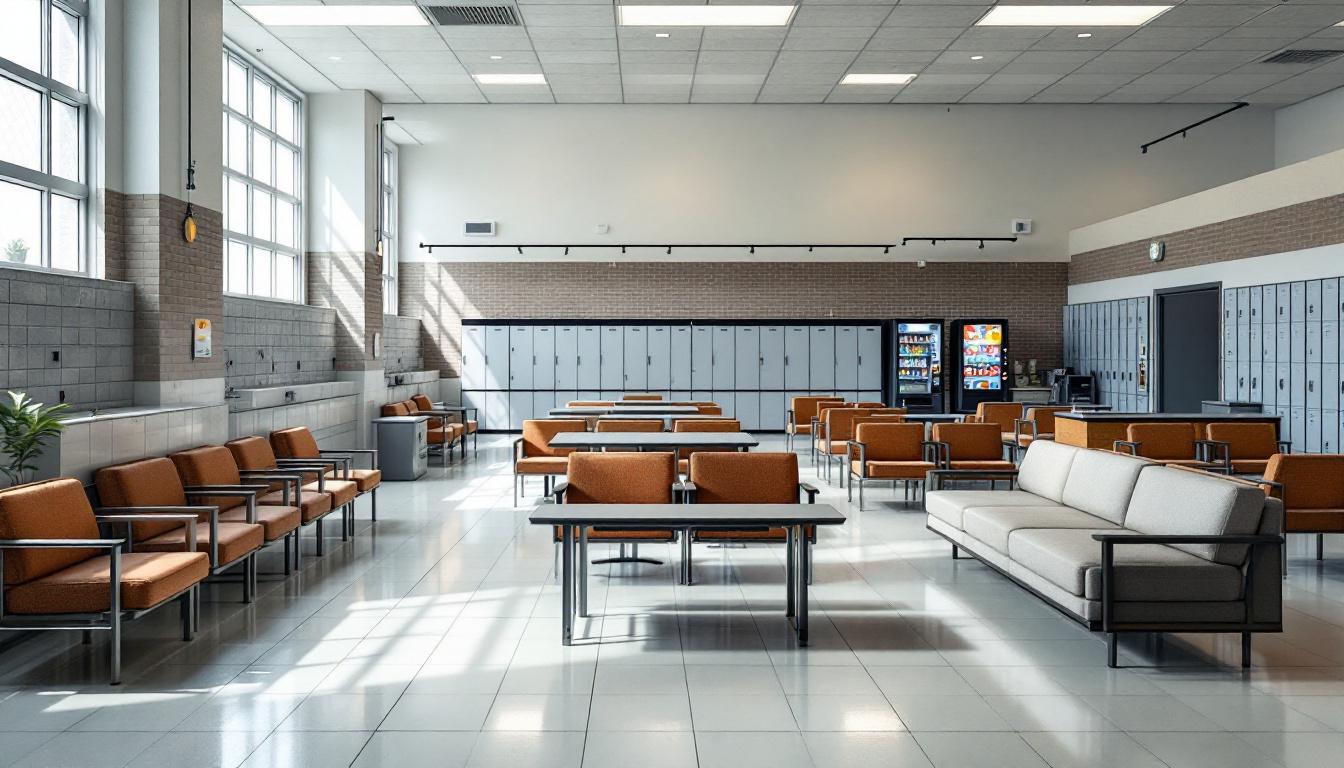
Strong family bonds and community connections continue to play a vital role in helping those incarcerated at the Queens County Detention Center navigate their daily experiences, with various programs and communication options designed to maintain these essential relationships throughout their time at the facility. The structured environment currently provides multiple opportunities for social interaction and mutual support among residents, fostering a sense of community that helps individuals cope with the challenges of incarceration while working toward their eventual reintegration into society.
The daily routine typically begins with early morning counts and meal service, followed by structured programming schedules that furnish both educational and therapeutic opportunities for personal growth. Those incarcerated generally participate in work assignments throughout the facility, which may include kitchen duties, maintenance tasks, and administrative support roles that help maintain facility operations while providing valuable job skills and a sense of purpose. Furthermore, recreational activities and exercise periods are usually scheduled throughout the day, offering residents opportunities to engage in physical fitness, organized sports, and social activities that promote both physical and mental well-being.
Living accommodations at the facility typically consist of shared housing units where residents develop supportive relationships with their peers, creating informal networks of mutual assistance and encouragement. Although security procedures are maintained throughout the facility, visitation policies generally allow for regular contact with family members and loved ones, while telephone and written correspondence options help those incarcerated maintain crucial connections to their support systems outside the facility. The commissary system usually provides access to personal items and snacks that can enhance daily comfort, and structured programming often includes educational classes, counseling sessions, and life skills workshops that prepare individuals for successful community reintegration while fostering positive social interactions within the facility environment.
Ready to Connect?
Start communicating with your loved one today
Search for an Inmate
